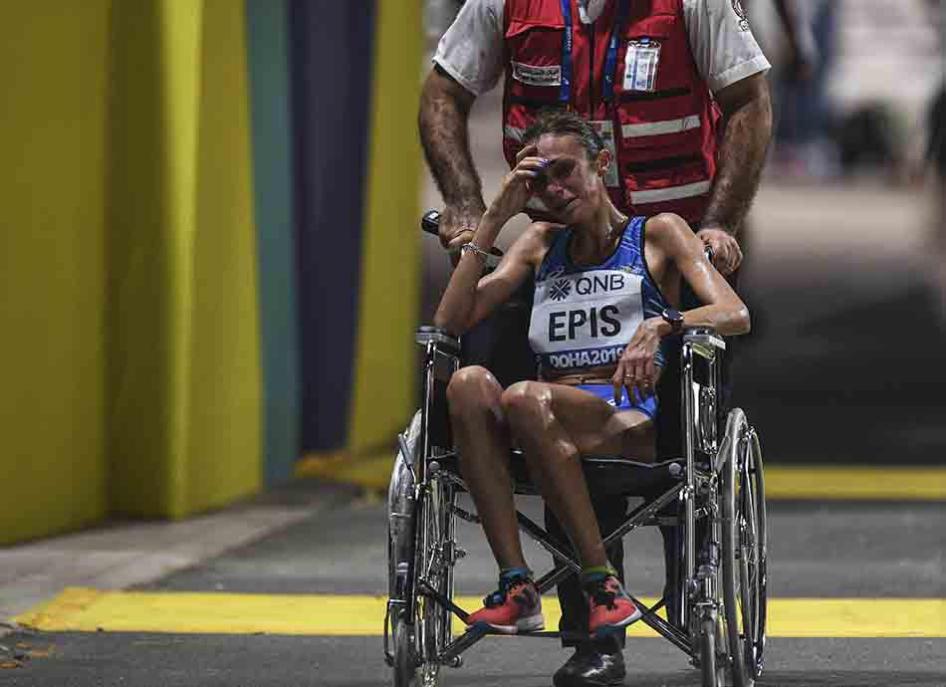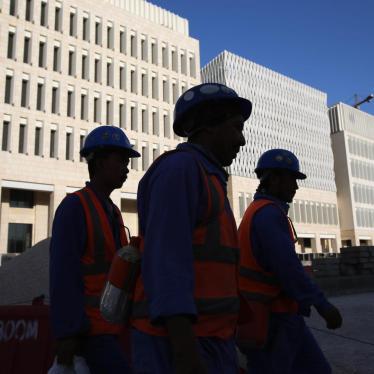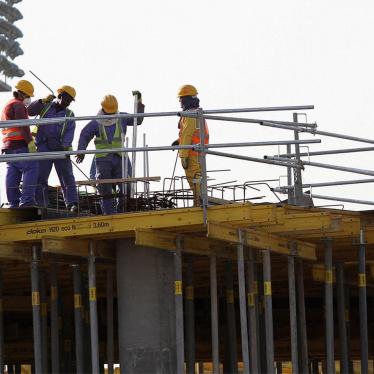Nearly half the athletes participating in the women’s marathon at the IAAF World Athletics Championships in Doha on Sunday pulled out of the race in what The Telegraph described as “shocking scenes of multiple athletes collapsing in distress.” Despite starting the race at midnight, runners were battling 30 Celsius temperatures and humidity levels above 80 percent.
“The humidity kills you,” said one runner who did manage to cross the finish line.
In response, the IAAF said they had done everything possible to minimize heat-related risks, including recruiting leading medical experts to monitor weather conditions, more medical staff on site, and increasing the number of refreshment points along the course. Organizers also proudly proclaimed no athlete succumbed to heat stroke following the race.
Watching this unfold, it is impossible not to reflect on the thousands of migrant construction workers in Qatar who do grueling work in similar weather conditions for up to 12 hours a day for six, and sometimes even seven, days a week, with woefully less protections in place.
Two years ago, Human Rights Watch released a report on the failure of the government to implement adequate heat regulations to protect the lives of workers toiling away outdoors. The report also documented the government’s lack of transparency on migrant worker deaths.
Today, despite repeated warnings of potentially fatal heat-related illnesses and precise recommendations on how to improve working conditions for migrant workers, heat protection regulations for workers in Qatar still only prohibit outdoor work at midday hours during the hottest summer months of the year. Authorities are also still refusing to report how many migrant workers died since 2012 and to seriously investigate why.
Will images of elite runners tumbling to the ground in exhaustion and being wheeled off course by medical teams spur athletes, journalists, event organizers, and international spectators to pressure Qatar to finally make migrant workers’ lives a priority? It should. Could that prompt Qatar to do so before the next and by far the biggest sports event in the world takes place in Doha in three years – the 2022 FIFA World Cup? After all, it is migrant workers who continue to shoulder the burden of building and delivering the mega event – and they are doing so, day after day, in the same oppressive heat that brought down the runners.










